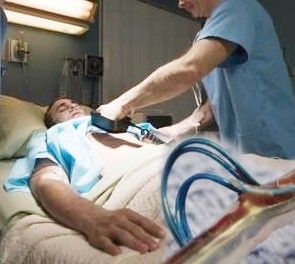
Study shows rate of externalized conductors in St. Jude Medical Riata Defibrillator Leads
St. Jude Medical, Inc. has released preliminary results of its study of externalized conductors in Riata and Riata ST Endocardial Defibrillation Leads.
Wed Jul 18 2012
St. Jude Medical, Inc. has released preliminary results of its study of externalized conductors in Riata and Riata ST Endocardial Defibrillation Leads.
The Riata and Riata ST silicone leads are used with an implantable cardioverter defibrillator (lCD) or cardiac resynchronization therapy defibrillator (CRT-D). They connect the defibrillator to cardiac tissue in order to monitor and regulate a patient’s heart rate by providing pacing and delivery of high voltage therapy for ventricular arrhythmias.
St. Jude Medical stopped selling the Riata and Riata ST leads in December of 2010 and estimates that about 79,000 patients currently have a defibrillator with these leads.
In November 2011, St. Jude Medical sent a letter to doctors informing them of the failure rates associated with these leads. While St. Jude Medical considered the letter a “voluntary medical device advisory,” the U.S. Food and Drug Administration (FDA) considered it a recall and issued a Class I recall of Riata (8F) and Riata ST (7F) Silicone Endocardial Defibrillation Leads because lead abrasion is causing externalization of the conductors.
Leads with externalized conductors may develop electrical dysfunction and not work as intended. This may cause serious health consequences, including death.
For the Riata Lead Evaluation Study, St. Jude Medical enrolled 718 patients in North America for which fluoroscopic imaging was available, 459 had Riata 8F Leads (1500 Series) and 259 had Riata ST 7F Leads (7000 Series). Another 51 patients were enrolled from Japan, but data from these patients is under review and not including in the initial study findings.
Fluoroscopic images showed (24%) 110 of 459 patients with Riata (8F) Leads had developed externalized conductors. In contrast, (9.3%) 24 of 259 patients with the smaller diameter Riata ST (7F) Leads had externalized conductors.
“The rates of externalized conductors in this study are consistent with other published studies involving fluoroscopic screening of patients with Riata leads. This study also reinforces that externalized conductors are more prevalent in larger-diameter Riata leads,” said Dr. Mark Carlson, chief medical officer and senior vice president of clinical affairs for the St. Jude Medical Cardiac Rhythm Management Division. “We are now focused on collecting longer-term data in the second phase of this study. Our goal is to provide physicians timely and relevant clinical data to best support their patient management decisions.”
In the next phase of the study, St. Jude Medical will perform a minimum of two years of follow up, focusing on the incidence of electrical malfunction in leads with externalized conductors.
The company said that as of February 29, 2012, it has received 671 reports of externalized conductors in Riata and Riata ST Leads.
